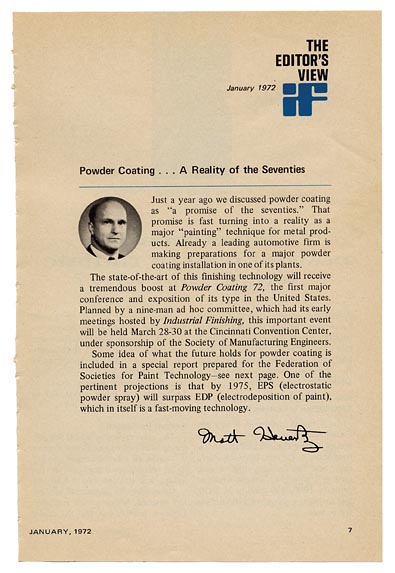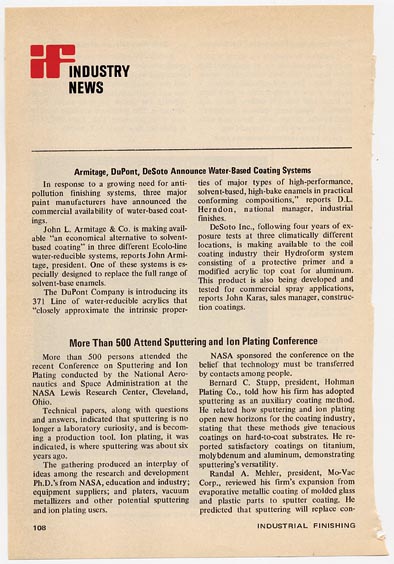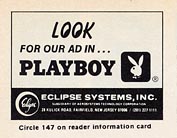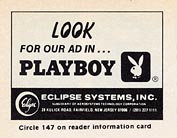

1972
Jan. 30-On "Bloody Sunday" in Belfast, Northern Ireland, 13 unarmed civilians are shot as British troops clash with Catholic demonstrators, touching off retaliatory attacks against British forces by guerillas.Feb. 21-President Nixon arrives in Peking for a historic eight-day visit that ends with a joint communiqué pledging that both powers will work for a normalization of relations.
May 15-While campaigning for president at a Maryland shopping center, Alabama governor George Wallace is shot in an assassination attempt that leaves him partially paralyzed.
May 22-In the first visit of a U.S. president to Moscow, Nixon arrives for a week of summit talks with Kremlin leaders, culminating in a landmark arms pact designed to balance missile forces and halt the nuclear arms race.
June 17-Five men, all of whom are employed by the Committee to Re-elect the President, are arrested for breaking into the Watergate offices of the Democratic National Committee.

Sept. 5-Eight members of an Arab terrorist group invade the Israeli dormitory of the Olympic village, eventually ending in the killing of 11 hostages and five terrorists.
Nov. 7-In the presidential election, Nixon wins over his Democratic antiwar challenger, Senator George McGovern, less than two weeks after Henry Kissinger returns from Vietnam to proclaim the war would be over "in a matter of weeks or less."

1973
Feb. 27-Close to 300 members of the American Indian Movement take over Wounded Knee, the site of an 1890 Indian massacre on the Oglala Sioux Reservation in South Dakota, demanding a government investigation of its treatment of Indians.March 29-The last U.S. troops leave South Vietnam, ending nearly 10 years of American military presence, though bombing would continue. Some 8,500 U.S. civilians remain, mostly to help the South Vietnamese armed forces.
April 30-In a television address, President Nixon denies any personal role in the Watergate cover-up, and accepts the resignation of his three top aides, H.R. Haldeman, John Erlichman and John Dean, and that of Attorney General Richard Kleindienst.

Oct. 6-The fourth and largest Arab-Israeli war in 25 years begins on Yom Kippur, the Jewish holy day of atonement, as Egyptian forces cross the Suez Canal and Syrian forces attack positions in the Golan Heights.
Oct. 10-Vice President Spiro Agnew resigns and pleads nolo contendre to tax-evasion charges. He's sentenced to three years probation and fined $10,000.
Oct. 19-The Arab oil-producing nations impose a total ban on oil exports to the U.S. to pressure it and Western Europe to force Israeli withdrawal from Arab lands.

1974
May 9-The House Judiciary Committee opens impeachment hearings against President Nixon.July 15-In a violent coup led by 650 Greek officers, the Cypriot National Guard overthrows the government, leading to an invasion by Turkey, ostensibly to protect the Turkish minority.
July 27-30-Following six months of investigation, the House Judiciary Committee votes three articles of impeachment, charging obstruction of justice, abuse of power and contempt of Congress.
Aug. 9-President Nixon resigns.
Sept. 8-President Gerald Ford issues Nixon a full pardon, arousing a storm of criticism.

1975
Jan. 2-In a magazine interview, U.S. Secretary of State Henry Kissinger hints that the U.S. might use military force in the Mideast "to prevent the strangulation of the industrialized world" by Arab oil producers.April 13-In Lebanon, warfare breaks out between Moslems and Christians. Three days of fighting in Beirut leave 120 dead and 200 wounded.
April 30-Hours after the emergency helicopter evacuation of all Americans in Saigon, and thousands of South Vietnamese who fear for their lives, South Vietnamese President Duong Van Minh announces unconditional surrender to the communists.
May 16-Congress votes $405 million for South Vietnamese refugees, of whom 130,000 are resettled in the U.S.
June 10-A commission headed by Vice President Rockefeller issues findings on illegal CIA operations, including record-keeping on 300,000 persons and groups; infiltration of agents in black, antiwar and political movements; mail surveillance; and drug testing.
Aug. 23-The Communist takeover of Laos is completed.
Nov. 15-Western Europe's two largest communist parties, French and Italian, issue a joint statement asserting that the road to power is through their democratic systems and declaring opposition to "all foreign interference," specifically by "American imperialism" and, by implication, the Soviet Union.
Nov. 20-After 36 years as dictator of Spain, Franco dies at 82.
1976
Feb. 4-A Senate subcommittee discloses that Lockheed Aircraft Corp. has paid $22 million in bribes abroad to sell its planes in Japan, Turkey, Italy and the Netherlands. Japanese Prime Minister Tanaka is indicted; Dutch Prince Bernhard resigns his military and business positions.Feb. 24-The Senate votes to grant commonwealth status to the northern Mariana Islands, leading to the first U.S. territorial expansion since 1924. The 21 Pacific islands are 3,500 miles west of Hawaii.
July 2-After almost 20 years of continuous warfare, North and South Vietnam are officially reunited with the North Vietnamese prime minister in charge of the new government.
July 26-For the first time in Italy's history, the Communist Party wins chairmanships of four Parliamentary committees.
Oct. 18-In a Pretoria interview, South African Prime Minister John Vorster states that he cannot "foresee such a day" when his nation's 4.2 million ruling whites would cede power to the 18 million blacks.
Nov. 2-James Earl Carter defeats President Ford by a narrow margin.
1977
Feb. 18-It's disclosed that the CIA made secret payments of millions of dollars to Jordan's King Hussein over 20 years; reports suggest similar payments to world leaders in Taiwan, South Korea, South Vietnam and Zaire.Feb. 24-The Carter administration announces a reduction of U.S. aid to specified countries for human rights violations.
March 9-President Carter ends restrictions on travel to Cuba.
May 7-8-In London, leaders of the world's seven major noncommunist industrialized nations hold an economic summit to coordinate policies on global inflation and recession.
Aug. 23-A Korean businessman is indicted by a U.S. federal grand jury for alleged bribery of U.S. Congressmen. Hearings disclose that several million dollars in cash was given by South Korean agents to more than 150 U.S. politicians to secure favorable votes.
Sept. 7-Ending 13 years of negotiations, Panama and the U.S. sign two treaties, one of which turns the canal over to Panamanian control.
Nov. 19-In a historic journey to promote Mideast peace, Egyptian President Anwar Sadat travels to Jerusalem at the invitation of Israeli Prime Minister Menachem Begin. The Arab states condemn Sadat's initiative and he breaks diplomatic ties with Syria, Iraq, Libya, Algeria and South Yemen.
Dec. 31-A 17-year-old jockey, Steve Cauthen, has broken all records with 487 wins and purses totaling $6,151,750 for the year, and is named Sports Illustrated sportsman of the year.

Report Abusive Comment